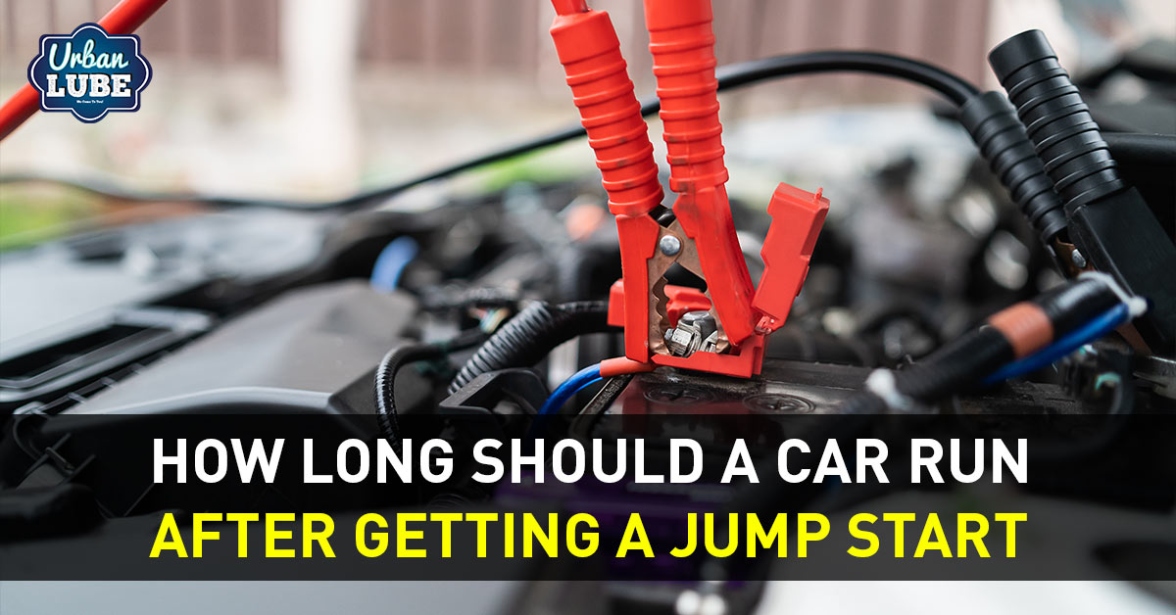Get Charged Up: The Best Practices for Your Car‘s Battery!
When it comes to keeping your car running smoothly, one of the most important things to consider is the health of your battery. A dead battery can leave you stranded on the side of the road, unable to start your car and get to your destination. But fear not! With the right knowledge and a few simple practices, you can keep your battery in top condition and avoid any unexpected breakdowns.

Image Source: urbanlube.ca
First and foremost, it’s important to understand how your car’s battery works. Your battery is responsible for providing the electrical energy needed to start your car and power Accessories like lights, radio, and air conditioning. It also helps stabilize the voltage in your car’s electrical system. Without a properly functioning battery, your car simply won’t run.
To keep your battery in good shape, it’s important to follow some best practices. One of the most important things you can do is to regularly check the battery terminals for any signs of corrosion. Corrosion can prevent the battery from properly charging and can even cause it to lose power. If you notice any buildup on the terminals, you can clean them with a mixture of baking soda and water.
Another important practice is to ensure that your battery is securely mounted in place. A loose battery can vibrate while driving, which can cause damage to the internal components and lead to a shorter lifespan. Make sure that the battery is held in place securely and that the cables are tight and free from any damage.
In addition to regular maintenance, it’s also important to know how long to run your car to recharge your battery. While it’s true that driving your car will help recharge the battery, it’s important to understand that not all trips are created equal. Short trips around town may not provide enough time for the battery to fully recharge, especially if you are using accessories like the air conditioning or radio.
To ensure that your battery gets the charge it needs, try to take longer trips at least once a week. This will give your alternator enough time to fully recharge the battery and keep it in top condition. If you find yourself making mostly short trips, you can also consider investing in a battery charger to give your battery a boost when needed.
It’s also important to be mindful of the weather conditions when it comes to your battery’s health. Extreme temperatures can have a significant impact on the performance of your battery. In hot weather, the heat can cause the battery to lose water and become overcharged, while cold weather can cause the battery to lose power. If you live in an area with extreme temperatures, it’s important to take extra precautions to keep your battery healthy.
In conclusion, taking care of your car’s battery is essential for keeping your car running smoothly and avoiding any unexpected breakdowns. By following these best practices and understanding how long to run your car to recharge your battery, you can ensure that your battery stays charged and ready to go whenever you need it. So, get charged up and hit the road with confidence!
Maximize Your Mileage: How Long to Run Your Engine
Have you ever wondered how long you should run your engine to get the most out of your Car‘s battery? It’s a common question among car owners, and the answer may surprise you. In this article, we’ll dive into the ins and outs of maximizing your mileage by knowing how long to run your engine.
When it comes to running your engine, the key is to strike a balance between not running it long enough and running it too long. If you don’t run your engine for long enough, your battery may not get fully charged, which can lead to problems down the road. On the other hand, if you run your engine for too long, you may be wasting fuel and putting unnecessary wear and tear on your engine.
So, how long should you run your engine? The general rule of thumb is to run your engine for about 20-30 minutes to ensure that your battery is fully charged. This timeframe allows the alternator to do its job of charging the battery without wasting fuel or causing excess wear and tear on the engine.
Of course, there are some factors that can affect how long you should run your engine. For example, if you have a newer car with a more efficient alternator, you may not need to run your engine for as long. On the other hand, if you have an older car or a car with a larger battery, you may need to run your engine for a bit longer to ensure a full charge.
Another factor to consider is the weather. In colder weather, it may take longer for your battery to charge, so you may need to run your engine for a bit longer. On the other hand, in warmer weather, your battery may charge more quickly, so you may not need to run your engine for as long.
In addition to the length of time you run your engine, it’s also important to consider how you drive. If you do a lot of short trips with frequent stops and starts, your battery may not have a chance to fully charge. In this case, you may need to run your engine for longer periods or take longer drives to ensure that your battery is fully charged.
Overall, the key to maximizing your mileage and keeping your battery healthy is to find the right balance when it comes to how long you run your engine. By following these guidelines and paying attention to the factors that can affect your battery’s charge, you can ensure that your car stays powered up and ready to go whenever you need it. So, rev up your engine and hit the road with confidence, knowing that you’re getting the most out of your car’s battery.
Stay Powered Up: Tips for Keeping Your Battery Healthy
If you want to ensure that your Car is always ready to hit the road without any battery issues, it’s important to take good care of your battery. After all, a healthy battery means a reliable ride! Here are some tips to help you keep your battery in top shape:
1. Regularly Check Your Battery’s Health:
Just like how you would go for regular check-ups with your doctor to ensure your health is in tip-top condition, your car’s battery also needs regular check-ups. This means checking the battery terminals for any signs of corrosion, making sure the connections are tight, and Inspecting the overall condition of the battery. If you notice any issues, be sure to address them promptly to prevent any further damage.
2. Keep Your Battery Clean:
Dirt and grime can build up on your battery over time, which can affect its performance. Make it a habit to clean your battery regularly to ensure that it stays in good condition. You can use a mixture of baking soda and water to clean the terminals and remove any corrosion. Just be sure to wear gloves and eye protection when handling the battery to avoid any injuries.
3. Avoid Short Trips:
Short trips may seem convenient, but they can actually be harmful to your battery. When you start your car for short periods of time, the battery doesn’t have enough time to fully recharge, which can lead to a depletion of its power. Try to combine errands into one trip whenever possible to give your battery a chance to recharge fully.
4. Turn Off Electronics When Parked:
Leaving your car’s electronics running when the engine is off can drain your battery quickly. Be sure to turn off the lights, radio, and any other electronics before you park your car to avoid putting unnecessary strain on your battery. This simple habit can help prolong the life of your battery and prevent any unexpected breakdowns.
5. Invest in a Battery Charger:
If you often find yourself with a dead battery, investing in a battery charger can be a lifesaver. A battery charger can help you recharge your battery quickly and efficiently, so you can get back on the road in no time. Keep a portable battery charger in your car for emergencies, or consider investing in a trickle charger to keep your battery topped up when not in use.
6. Park in a Garage:
Extreme temperatures can have a negative impact on your battery’s performance. If possible, try to park your car in a garage or shaded area to protect your battery from the heat of the sun. This can help prolong the life of your battery and ensure that it stays healthy for longer.
By following these tips, you can help keep your car’s battery healthy and ensure that it stays powered up for all your adventures on the road. Remember, a little bit of maintenance goes a long way when it comes to taking care of your battery. So, rev up your ride and hit the road with confidence knowing that your battery is in top shape!
Rev Up Your Ride: The Ultimate Guide to Recharging
Are you ready to rev up your ride and keep your Car running smoothly? One of the most important things you can do for your vehicle is to make sure that its battery is fully charged. A well-charged battery means that your car will start easily, run smoothly, and perform at its best. But how long should you run your car to recharge the battery? Let’s dive into the ultimate guide on recharging your car battery and keeping your ride in top shape.
First and foremost, it’s important to understand how a car battery works. A car battery is essential for starting your vehicle and providing power to the electrical systems while the engine is off. When you start your car, the battery sends a surge of power to the starter motor, which then cranks the engine and gets it running. Once the engine is running, the alternator takes over, recharging the battery and providing power to the electrical systems.
Now that you know the basics of how a car battery works, let’s talk about how long you should run your car to recharge the battery. The answer to this question can vary depending on a few factors, such as the age and condition of your battery, the type of driving you do, and the weather conditions. In general, it’s a good idea to drive your car for at least 30 minutes to fully recharge the battery. This will give the alternator enough time to replenish the charge that was used to start the car.
If you’re only taking short trips around town, you may find that your battery doesn’t have enough time to fully recharge. In this case, it’s a good idea to take your car for a longer drive every once in a while to give the battery a chance to recharge fully. Ideally, you should take your car for a drive of at least 20-30 minutes at highway speeds to ensure that the battery is fully charged.
In addition to driving your car for the right amount of time, there are a few other things you can do to help keep your battery in top shape. One of the most important things you can do is to make sure that your battery terminals are clean and free of corrosion. Dirty or corroded terminals can prevent the battery from charging properly and can even cause the battery to lose its charge more quickly. You can clean the terminals with a mixture of baking soda and water, or you can use a terminal cleaning brush to scrub away any corrosion.
Another important thing to keep in mind is the temperature at which you’re driving your car. Extreme temperatures can have a big impact on your battery’s performance, so it’s important to take steps to protect your battery in hot or cold weather. In hot weather, you can park your car in the shade or use a sunshade to help keep the interior cool. In cold weather, you can use a battery blanket or heater to keep the battery warm and prevent it from losing its charge.
In conclusion, keeping your car battery fully charged is essential for maintaining your vehicle’s performance and reliability. By driving your car for at least 30 minutes to recharge the battery, keeping your battery terminals clean, and protecting your battery from extreme temperatures, you can ensure that your ride is always ready to go when you need it. So rev up your ride and keep your car running smoothly for years to come!
how long to run car to recharge battery





